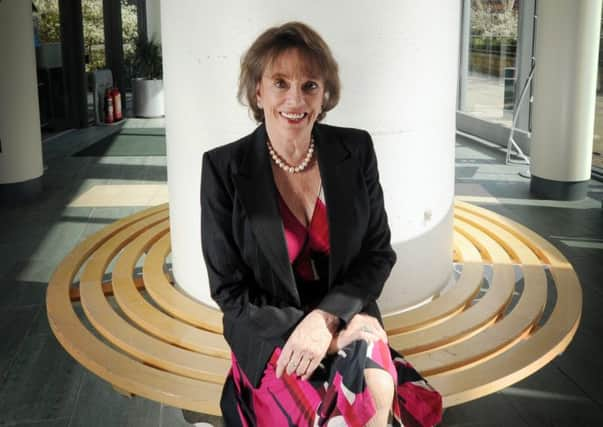‘Shock’ at numbers of lonely seeking help in Silver Line’s first year


The helpline for older people received almost 300,000 calls from lonely people in its first year of operation, it has revealed.
Broadcaster and president of The Silver Line Ms Rantzen, who in April backed The Yorkshire Post’s Loneliness: The Hidden Epidemic campaign, calling it “brilliant”, said older people have been “neglected and abandoned” for too long, and more must be done to tackle the issue.
Advertisement
Hide AdAdvertisement
Hide AdTo mark its first anniversary this week, the helpline has launched a new partnership with the Care Quality Commission (CQC) to reach out to vulnerable older people in care homes.
Since its launch, demand on the helpline has far exceeded expectations, with 200,000 more calls than anticipated. The single biggest reason for people calling was loneliness, the charity said. More than half, 54 per cent, said they had nobody else to talk to.
Ms Rantzen, who also founded Child Line said: “We knew loneliness existed in this country, but the extent of this epidemic of loneliness and isolation suffered by people over 65 has shocked and alarmed us. Many of our callers ring us on a regular basis because they tell us we are the reason they can get through the day. As one widow told me, ‘Many times I have wanted to give up. Now I have something to live for.”
Silver Line has trained more than 850 volunteers to make regular befriending calls to more than 1,100 older people. It has also set up conference calls for groups of like-minded people and a letter writing service for people who might be hearing impaired.
Advertisement
Hide AdAdvertisement
Hide AdBut demand on befrienders is so high a waiting list is in place, and Silver Line staff make an extra 1,000 calls a week to people who are waiting to be matched.
Patrick Geoghegan, chair of The Silver Line, said: “It is shocking that older people tell us they are not frightened of dying but they are frightened of dying and not being found. They tell us at least with our weekly calls they know someone will notice if they do not answer, and they also know that someone cares about them.”
Ms Rantzen added: “This Christmas will be a very tough time for thousands of older people on their own. But without help from the public we cannot continue to be there for all the people who need us. I believe at Christmas time we need to remember our older people. They have been neglected and abandoned too long, they deserve our love and respect, and after all, they have earned it.”
One of the first calls to The Silver Line was from a lady in a care home, too afraid to give her name, who told how residents had been left without food and the heating turned off. The police were called and the residents are now safe. This, and the five per cent of calls that refer to abuse and neglect, have prompted the CQC partnership, to reach out to vulnerable people receiving care in their own homes, or in residential homes.
Advertisement
Hide AdAdvertisement
Hide AdSilver Line chief executive Sophie Andrews said the charity was in a “unique position” to reach people who would not otherwise report poor standards of care and neglect, and work with the CQC to better protect the most vulnerable people in society.
To volunteer visit www.thesilverline.org.uk